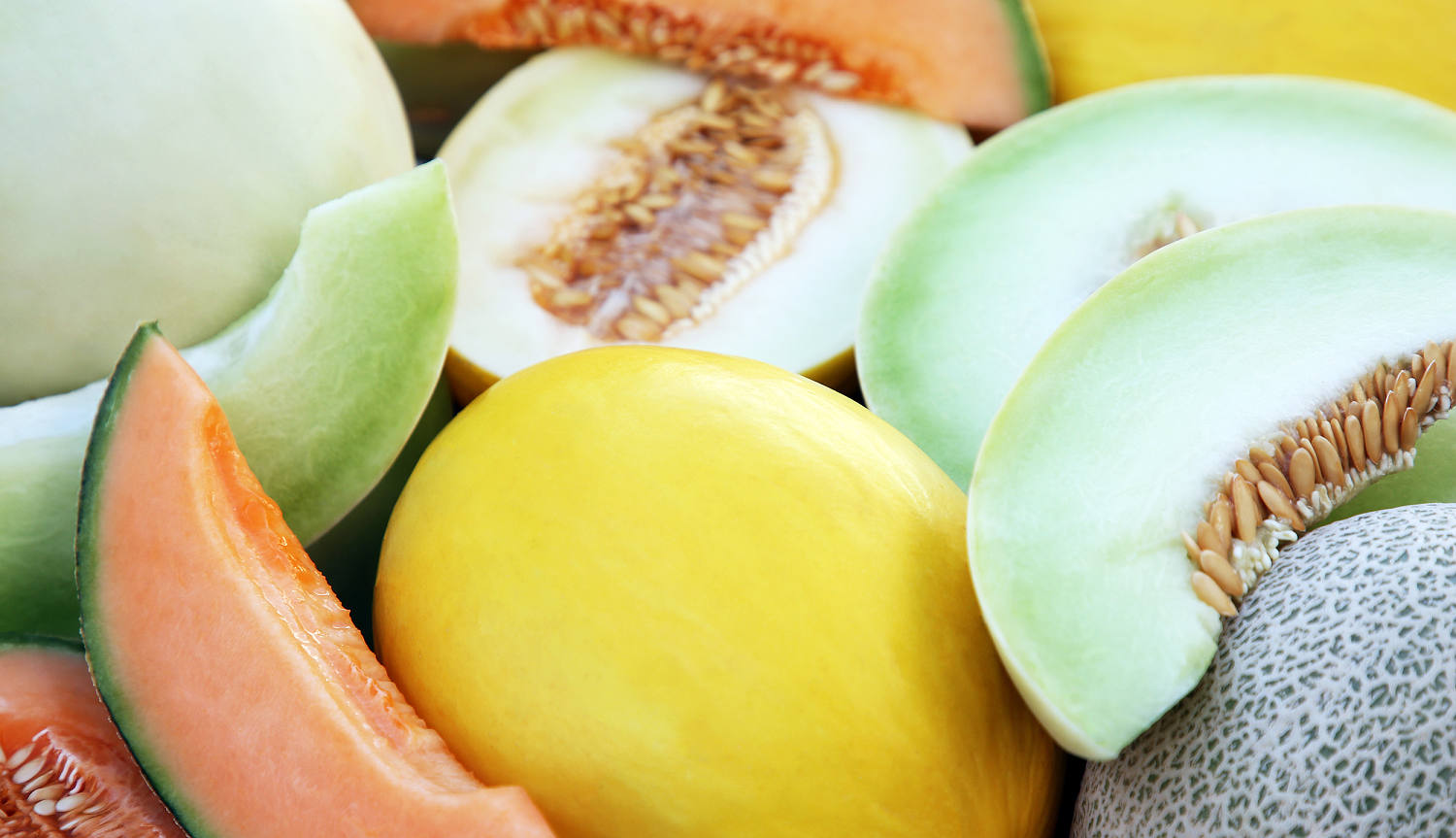Melons are in season from May through September, so now’s a great time to shop for cantaloupe and honeydew. Both are delicious, hydrating fruits, but they have distinct nutritional profiles and some culinary differences. Both fruits are a nutritious addition to your diet, but there are some differences in their nutrient profile.
Here’s how they stack up per cup. Both cantaloupe and honeydew are low in calories and contain a range of nutrients, so either way, you can’t go wrong. Plus, both are rich in water, which can help you stay hydrated.

When you’re even mildly dehydrated, it can affect your mood, energy and performance. There’s also that staying well-hydrated can help you fend off chronic illnesses and live longer compared to those who may not be well-hydrated. A cup of either fruit has 5 ounces of water.
Most people don’t eat enough (or vegetables), and either choice would help you get more fruit in your diet and fill your body with essential nutrients. One of the standout features of cantaloupe is its high vitamin A content. A single cup provides 40% of the daily recommended intake of vitamin A, primarily in the form of beta-carotene, which is essential for eye health and immune function.
Cantaloupe also provides about 65% of the daily value for vitamin C, an antioxidant needed for collagen synthesis and a healthy immune system. Both beta-carotene and vitamin C are antioxidants that protect against cellular damage caused by an imbalance between harmful free radicals and protective antioxidants. This imbalance can lead to oxidative stress, which accelerates aging and promotes numerous diseases, including heart disease and .
On the other hand, honeydew is higher in potassium, a mineral that helps maintain healthy blood pressure levels. Honeydew also contains vitamin C, though less than cantaloupe. Both types of melons are a great addition to your diet, but if you have specific health goals, there may be benefits to one over the other.
In addition to the nutrients listed above, cantaloupe contains lutein and zeaxanthin, nutrients that support healthy vision. With its higher potassium content, honeydew may be more helpful for managing blood pressure. Potassium helps your body excrete sodium, which, when eaten in excess, can lead to high blood pressure.
Potassium also helps relax your blood vessel walls, which allows blood to flow through your vessels more easily, thus lowering . Both melons provide vitamin C, but cantaloupe is higher in this nutrient, which is crucial for a healthy immune system. Your immune system needs vitamin C in its army of defenses against invaders, such as bacteria and viruses.
Vitamin C’s role as an antioxidant protects against many chronic health issues. When it comes to these two options, it’s hard to pick a winner. The reality is that most people benefit from eating two cups of per day, yet few people meet this requirement.
Varying your fruit intake is also a good idea since eating a diverse range of plant foods has been shown to support a healthy gut microbiome. Your gut microbiome is responsible for helping you absorb nutrients, regulate , , and , regulate , manage , and maintain a . So, choosing both fruits, in addition to lots of other plant foods, may be a better strategy than focusing on one over the other.
Given the role of variety in your diet, I’d encourage you to eat honeydew cantaloupe, as well as other types of melon, such as watermelon. However, there may be times when you choose one over the other, depending on how you plan to use the fruit in your meals. Cantaloupe has a slightly softer texture and a sweeter flavor, making it ideal for fruit salads, smoothies and desserts.
A wedge or chunks of cantaloupe served with Greek yogurt, honey and pistachios would make a delicious Mediterranean diet-style dessert or breakfast. Cantaloupe also pairs well with prosciutto for a sweet-and-salty snack or appetizer. Honeydew has a firmer texture and subtler sweetness.
It makes a great addition to fruit platters and salads. For instance, honeydew tastes delicious with cucumber and a mint garnish, which you can make into a salad or blend into a smoothie with Greek yogurt. Since it’s a bit firmer than cantaloupe, honeydew also works well in salsas and cold soups, though you may also find cantaloupe used in these ways.
To create delicious snacks, drinks and desserts, blend honeydew or cantaloupe into smoothies, slushies, agua frescas, or popsicles, and sorbets. Both honeydew and cantaloupe melons have benefits for your body and your taste buds. They’re hydrating, delicious options that can add a nutritious boost to your diet.
Both melons are versatile, and you can incorporate them into a variety of dishes, so don’t feel like you have to pick one over the other. Instead, I’d suggest experimenting with both to find new and delicious ways to enjoy them. , MS, RD, is a nutrition and wellness expert, author and columnist.
Her latest book is " ." You can follow Samantha's practical balanced eating advice on Instagram at ..



















